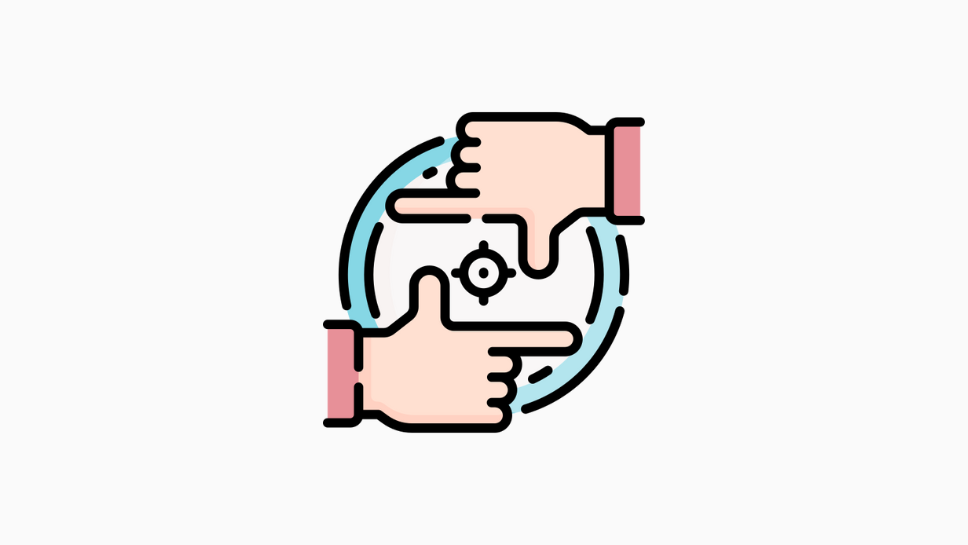Table of Contents
I used to get so distracted. If my phone buzzed I would check it instantly. If someone knocked on my door I’d drop everything I was doing for a chat. And I always had some excuse for not getting things done right away.
Today, my life is completely different. I can sit down and smash out my work, regardless of how tedious the task is. I’ve learnt how to focus my energy on what’s in front of me and ignore the endless stream of fun distractions that compete for my attention on a daily basis.
So, in this article, I am going to show you how you can do exactly the same by providing a few evidence based tips that enable you to get the most out of your studying. Oh, and doing so without completely burning yourself out and living a healthy, well-balanced, life at the same time.
🥱 Rest
One of the most interesting experiments on the importance of Rest with respect to effective work comes from a study called ‘About Sleep’s Role in Memory’. In the study, a group of subjects were told to solve the Tower of Hanoi, a mathematical puzzle where the participant must move a neat stack of disks from one rod to a third peg while ensuring no larger disk is placed on top of a smaller disk (the Wikipedia page on this has a nice animation of this process).
After attempting to complete the task once, half the subjects were retested one week later. In this group, they found that there was a 40 percent improvement in their ability to complete the puzzle. However, the other half of the group were expected to repeat the test in the next steep having endured interrupted sleep. This group was found to have no improvements in their results.
In other words, it seems as though sleep is helping us to consolidate memories and is a vital component in making good judgements and devising creative solutions. So although you may think you are gaining an extra few hours of work by sleeping as little as possible, the long term impact will be a negative one: you will retain less information and struggle to navigate more complex tasks.
In another experiment (Sleep inspires insight, Wagner et al.), it was demonstrated that sleep can increase the chance you’ll have a creative insight. In the study, subjects were taught a complicated algorithm for solving a mathematical problem, and although there was a simpler solution to the problem they were not aware of this at the beginning of the experiment. They then tested the subjects 12 hours later (one group with no sleep in between and the other with sleep), and they discovered that when the subjects had not slept the results were unremarkable at best. However, those who were able to sleep demonstrated an impressive rate of discovery of the ‘easier’ method, showing their greater inclination to creative solutions.
You see, our brains use rest to learn, adapt, and build connections over night. It was a good night’s sleep that led to Paul McCartney writing the song ‘Yesterday’, Kekulé to discover the chemical compound benzene, and even Jack Nicklaus said it helped him to improve his golf swing. Put another way, if you want to perform at the highest level you can’t go wrong with having an adequate amount of rest.
Finally, it’s worth noting that for the large majority of us it’s important that we get at least 7 hours of quality sleep. If your sleep is poor quality your brain won’t build the connections and adapt in the ways necessary to feel refreshed the next day. Walker, in the fantastic book Why We Sleep, said that we can improve the quality of our sleep by making a number of suggestions:
- Increase bright light exposure during the day
- Reduce blue light exposure in the evening
- Avoid caffeine in the evening
- Try and sleep and wake at consistent times
- Avoid alcohol before bed
- Keep your bedroom as dark as you can and colder than you think
So, the first step to effective studying is adequate rest.
🏋️♀️ Exercise
Another crucial component of working more efficiently for longer hours is exercise. Working out not only helps prevent the loss of brain tissue during ageing, but it also helps us to process information more quickly and generally improve cognitive health.
In one study, it was found that intense exercise directly improves learning. After just two sprints of less than 3 minutes each, subjects learned 20% faster compared to moderate exercise or being sedentary. The reason for this is that intense exercise results in increased levels of peripheral catecholamines (dopamine, epinephrine, norepinephrine), which for the subjects involved meant better immediate and long-term retention of novel vocabulary.
Acute exercise improves memory in a time-dependent fashion by priming the molecular process involved in the encoding and consolidation of newly acquired information. – Roig et al., 2013
In addition, exercise improves your emotional state, allowing you to more easily concentrate and enter a state of flow. The endorphins released through physical exertion operate to reduce anxiety, depression and stress levels, which ultimately makes you feel happier and more calm.
You see, mindset is such a crucial component of effective study (as we shall see in a moment). Much of the reason we procrastinate is because we’re simply not feeling it, but exercise helps to reduce these negative thought processes and strengthen our optimistic outlook when faced with a challenging task.
Therefore, the second step to effective studying is to exercise regularly.
👨💻 Study Space
Classical conditioning tells us that we learn through association. And it’s also a really good trick for getting yourself into ‘work mode’ quickly.
It was first discovered by a Russian physiologist called Pavlov, who would ring a bell every time his dog was fed. To begin with, it was the presence of the food alone that would cause the dog to salivate, but over time the dog began associating the bell with his upcoming meal. As a result, the dog would salivate through the sound of the bell alone and not the presence of the food. He had been conditioned to associate the bell with food.
In a similar vain, you can condition yourself to associate a certain space with work. For instance, every time I sit at my desk it will be to work. If I want to relax or do something different, I can’t do it at my desk. This allows me to instantly (and subconsciously) get into work mode, because I’ve primed myself to work when sat at my desk through classical conditioning.
So, try and do the same thing. It doesn’t necessarily have to be at a desk and it’s worth trying different locations to find what works for you. Some people will find they work better in a library, a coffee shop, or even outside. Either way, you need to pick one spot and ensure it becomes your designated work location through classical conditioning.
Furthermore, you want to ensure your study space has as few distractions as possible. That means putting your phone on silent (and preferably out of reach), turning off the internet (if possible), tidying your desk, and ensuring you have everything you need before you start working (water, a snack, pens, paper, etc.).
In one study, it was found that media multitasking negatively correlates with remembering. By diversifying attention between different tasks while completing a central task (such as completing an essay), the study continued, we are prone to having attention lapses and forgetting the things we are trying to learn. Put another way, a distracted workspace results in a distracted and ineffective mind.
🧠 Mindset
Finally, the correct mindset is vital to making the most of our study time.
The biggest problem I’ve noticed is that students tend to frame studying the completely wrong way. Typically you hear people say “I HAVE to study X” or “I HAVE to revise for Y”, which frames their work as a chore that has to be endured. Instead, students should be framing their studying in a positive light: “I GET to study X” or “I GET to study Y”.
It’s a subtle difference but it puts the focus on the benefits of the challenge ahead of you. It would be easy to see writing an essay as a slog that has to be endured (instead of socialising with friends), but it’s not healthy or helpful. Instead, you GET to write the essay on a topic that you are partially interested in, it brings you a step closer to your goal of graduating, and offers you an opportunity to demonstrate how intelligent you are!
The other important aspect of mindset is to mentally chunk up tasks. Thinking of everything you have to do can be incredibly overwhelming, so try to only focus on the task in front of you and nothing else. This is the advice Dale Carnegie offers in his excellent book How to Stop Worry and Start Living:
If you want to avoid worry, do what Sir William Osler did: live in “day-tight compartments.” Don’t stew about the future. Just live each day until bed-time. – Dale Carnegie
Although he is telling you to focus on the day-to-day, I’d advise you to have an even tighter focus: don’t look further than an hour. Know what you have to do in each 60 minute period and keep your head down. There’s no need to worry or think about anything else.
On that note, know specifically what you’re going to study throughout the day and then break those tasks into pomodoros (25 minute chunks of study with 5 minutes rest in-between). That way you are only focusing on the next 2 pomodoros and minimising any opportunity for distraction as you have designated ‘distraction time’ within your 5 minute rest breaks.
So, to summarise, efficient study is also all about being intelligent with your time and intelligent with your mind.
🎉 Conclusion
Studying efficiently isn’t all about the best way to read a textbook and memorise facts, but is also about the way you spend your time and enjoy your life more generally. These are just a few of the main tips and tricks I incorporate into my own life that has worked incredibly well in making my studying more efficient and more effective. I hope you found it useful!

